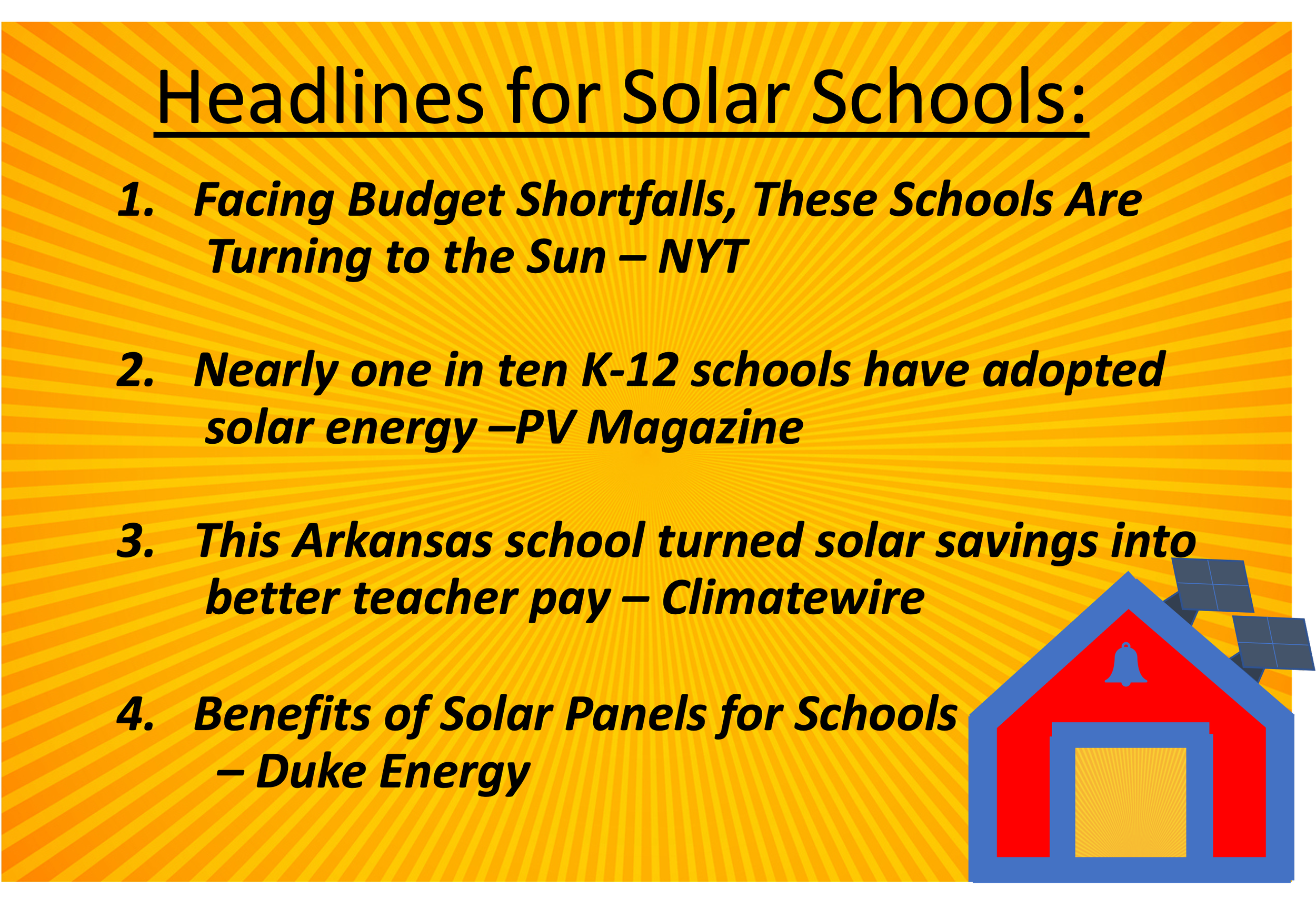Solar for Decatur Schools? Yes!
What if?
What if we could save money, increase teacher salaries, and help give our students agency in addressing the climate crisis at the same time? It seems too good to be true, but many school districts are doing this by turning to solar.
In 2017, Batesville, Arkansas did just that. Facing a $600,000 annual energy bill, they installed 1,400 solar panels on their schools. The project has helped slash the district’s annual energy consumption by 1.6 million kilowatts and in three years generated enough savings to transform the district’s $250,000 budget deficit into a $1.8 million surplus.
Batesville, used a bond initiative to finance their project, but today could use a PPA or Power Purchase Agreement with no upfront costs.
According to PV Magazine, solar installations for public and private schools in the U.S. have tripled since 2015. Nearly 1 in 10 schools have adapted solar.
So why not Decatur Schools? Like many school districts emerging from the pandemic, facing issues from what they teach to the books they use, adding one more thing may just seem like too much. But Decatur Schools and our community are exceptional.
Many of us turned out at the recent CDS strategic planning session to ask that clean energy be part of the plan. We asked the school system to put together a clean energy plan by the beginning of the next school year. This would include, solar, energy efficiency, and electric transportation.
As Decatur faces increased heat days over the coming years, the City of Decatur-Agnes Scott Sustainability team is looking at schools as temporary emergency shelters for heat and extreme weather events as one option. But this means that dependence on the grid is a risk. What happens when the power goes out due to electrical cooling heat loads? Just look at the recent California or Texas power challenges.
How can we do this? The first step on this journey is believing that we can do it. The next is making sure we get buy in.
Once the school district has buy-in from the community, decision makers can use help from local experts or even a how-to-guide from Generation180. The guide us useful in understanding the process of schools going solar. Eight steps are laid out for getting started: All In for Decatur 100 believes that solar for our schools makes sense. Dollars and cents.
What if every U.S. public school used 100% solar power? Then the education system could drive emissions reductions that would be equivalent to closing 18 coal-fired power plants.
Together, we can do this, starting in our own schools. Thanks for all your help and interest.

